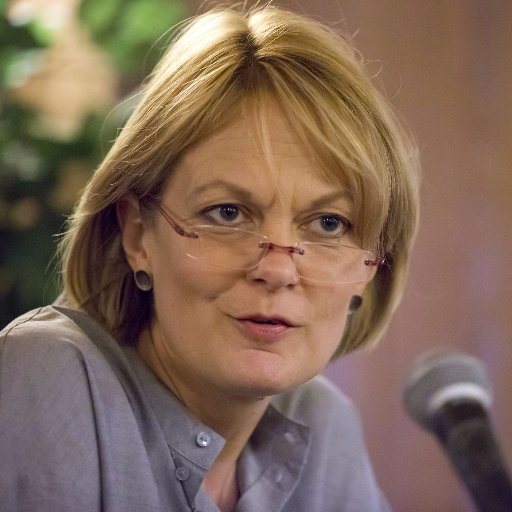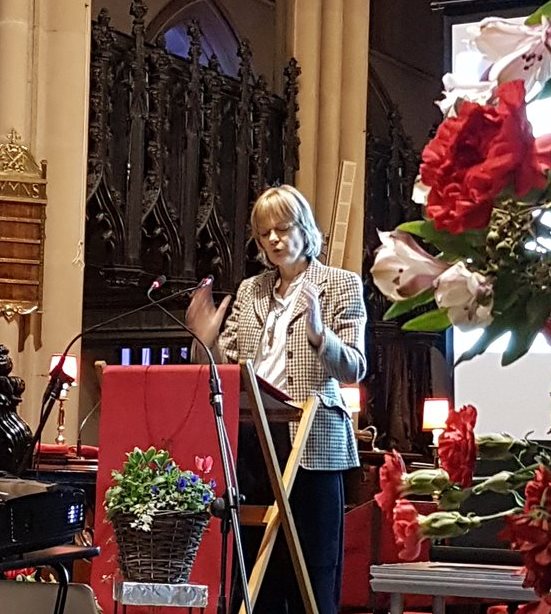 'Remembering The Dead: Changing Public & Private Practices' was the title of this year's Hook Lecture at Leeds Minster.
'Remembering The Dead: Changing Public & Private Practices' was the title of this year's Hook Lecture at Leeds Minster.
It was delivered by Linda Woodhead, Professor of Sociology of Religion in the University of Lancaster, who looked at how those who say they are 'no religion' on surveys make sense of life and death, how we are reinventing rituals, how 'no religion' is being institutionalized, and how all this relates to our Christian past.
The Revd Tom Lusty, Vicar of St Chad’s Headingley, went along and this is his account:
If anyone is on the pulse of where we are at in terms of levels of religiosity as a nation it is Linda Woodhead. In her lecture she scrutinised recent changes in the nation’s funeral arrangements and made broader comments from her findings about “a fascinating period of change and innovation and recovery of the past”.
In her recent book “That was the Church that Was”, she has charted the decline in attendance in the Church of England – by half in the four decades since Thatcher came to power. So one might have been braced for a bleak lecture, but no, she said in this case it is more interesting and complicated picture than religion just being pushed to the margins.
 She said that the language of blessing is back, “another word that makes perfect sense for a non-religious person . . . Angels are everywhere, and grave goods, and lucky heather and more dream catchers than you can imagine”.
She said that the language of blessing is back, “another word that makes perfect sense for a non-religious person . . . Angels are everywhere, and grave goods, and lucky heather and more dream catchers than you can imagine”.
Some of these changes have been prompted by national responses to significant public grief. For example, there were a lot of ‘firsts’ at Princess Diana’s funeral. Flowers were thrown on the hearse, and in his address, Earl Spencer spoke to Diana as if she was present.
The tragedy of Alder Hey was a reminder that the bodies of people really matter. Hillsborough was another marker on the journey, in terms of a deregulation of what we do around death.
We were introduced to “the religion of no religion”. Unlike atheism, it has some core sacred values: loving kindness to all but without the establishment holding it all together, and epicureanism – “that life is for living, and coffee shops and nice beds”. While belief in an afterlife remains high (70% of UK population, and rising), we have become “metaphysically more modest” as a nation, with a greater appreciation we don’t have the answers to life and death at our fingertips.
The quality of the talk was reflected in the number and variety of questions raised. For instance, do modern practices help or hinder the grief recovery process … and how do we measure recovery? I enjoyed one reflection on the difference between World Cup fans and real football fans - “they haven’t suffered out there in the rain like we have” – an analogy contrasting long term God fans with those who have suddenly become ‘religious’: do religious folk resent the newcomers playing with our deeply valued stuff?
It was a special moment when Professor Woodhead was asked what she would like for her own funeral. She answered honestly, “I don’t know” – bewildered herself by the variety of options. Having been to the national funeral exhibition recently, she would quite like a shroud “being the cheapest and most ecological option … and you can see the shape of the body”. She had clearly thought about it.
I thought about my attempts to be pastorally responsive as a healthcare chaplain over a decade. I enjoyed the conversations the lecture stimulated afterwards. One vicar shared his annual practice of burying Jesus at 6pm on Good Friday (using life size image of a Piero della Francesca Jesus at his baptism). A wonderful way of re-engaging with bereaved folk and prompting thoughts of Easter. Which is how I personally felt about attending the Hook Lecture this year.
The Hook Lectures, named in honour of Walter Farquhar Hook (1798-1875), a Vicar of Leeds who was passionately committed to supporting education and social welfare in the city, are jointly organised by Leeds Church Institute, Leeds Minster, and Theology and Religious Studies at the University of Leeds. They bring together faith communities, the university and the city by addressing themes related to public life and the common good.